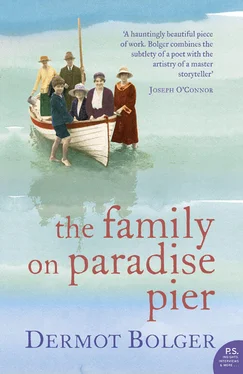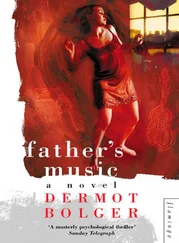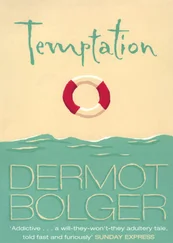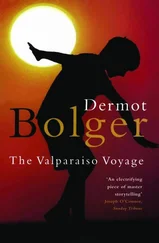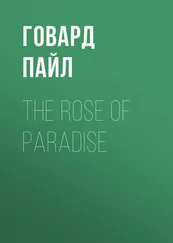The group drank up, hurrying out from the pub now onto the dark quayside where the casual hiring was about to commence in a large iron-barred shed. Dockers permanently employed by the big firms brushed past them, knowing that they were guaranteed work. But for the men around Art it was a case of hoping that smaller ships had docked in the night and needed casual workers to unload them. Men emerged from other pubs and nearby streets, a swarm pressing into the shed where stevedores selected workers from the crowd. Art stood beside Liam and Tomas who didn’t know the stevedores and so found it hard to get noticed. This was capitalism at its most ruthless – men reduced to units of labour, hired for the shortest time then discarded when they grew old. Repeatedly the old carpenter pleaded with the stevedores who shook their heads. Art was impressed at how the other hungry men, while focused on their own plight, sympathised with him. This was a world Art knew little about, but he might learn more here than from a day in university.
He began to raise his hand amongst the clamouring throng as things started to look desperate for the remaining men. Liam and Tomas were amused at first, then hissed at him to stop messing. He ignored them, fighting his way forward to eventually attract the attention of a burly stevedore.
‘What the hell do you want?’
‘A day’s work. You’re hiring, aren’t you?’
‘I’m hiring men. This isn’t some sort of student lark.’
‘I’m as strong as any man you’re taking on.’
‘You’re big all right but your hands are as soft as a baby’s arse. Now piss off.’
The other men regarded Art with none of the measured sympathy they felt for the old carpenter. They stared at him coldly, like he was trying to mock them. Was it solely his accent and clothes or was there another difference that he was unaware of? Perhaps the proletariat was harder to join than the bourgeoisie. From an early age the proletariat was trained to ape their so-called betters, whereas the rich were trained to largely ignore the existence of workmen and servants. He could not recall the names of all the maids who worked in the Manor House when he was a boy but all of them would remember him.
The stevedore glanced at a shabbily dressed young man with huge shoulders standing behind Art.
‘Ready to burst a gut?’
The young man mutely nodded and the stevedore nodded too. Art noticed how their interaction was entirely based on appearances. Only five words had been exchanged. Men behind Art pushed aggressively forward and he moved back to where he was less intrusive but could still observe these rituals. The stevedore chose his crew and there was an anguished murmur, although someone amongst those left claimed that there was another ship yet to be unloaded. Art went to join Liam and Tomas at the entrance to the shed, though he sensed that their camaraderie had cooled since leaving the pub.
‘Swap shirts,’ he said to Liam.
‘Are you daft?’ The Mayoman laughed.
‘It seems a fair exchange.’
‘You won’t be saying that, being eaten alive by his fleas all night,’ Tomas joked. ‘Talk sense, man.’
Art ignored Tomas. ‘Do you want this shirt or not?’
Liam licked his lip nervously. ‘What’s the catch?’
‘None. I’ll swap you my shoes, trousers and all.’
‘Jaysus, is it to be standing in the nip you both want?’ Tomas asked. ‘I’m not staying around to be a laughing stock.’
But Tomas didn’t move and Art recognised the greed in his eyes. He was jealous that Liam had been asked. Liam sensed this too and he agreed to the swap as much to gain an advantage over his companion as to get the clothes.
Both of them went down a narrow dank alley smelling of piss between two warehouses. They undressed, first exchanging shirts and then trousers, anxious that no garment touched the filthy ground. Liam’s boots were too tight for Art, and Liam would slide about in his shoes but the Mayoman did not complain. Liam craned his neck, trying to inspect himself in his new outfit.
‘Well? Do I look like a gentleman?’
‘Yes,’ Art lied, though the way in which Liam held his body resembled an awkward servant in fancy dress. ‘Do I look like a docker?’
‘No.’ Liam was suddenly aggressive, feeling that he had been made a fool of. ‘You look like the gobshite you are. Now piss off and stop following us.’
The Mayoman stalked off to rejoin his companion and Art watched them leave, knowing that there was a new friction between those two friends. Collins’s death had been quickly forgotten in the acquisition of a good shirt. This was the corrupting influence of possessions. It was easy for Art’s college friends to discuss Marxist theory but the Ffrenches had shown that it was possible to live out your convictions. As yet he was not in a position to follow them to Russia but this morning was a first step. He wondered if Mr Ffrench dressed like this in the Moscow furniture factory where he and his wife had now been working for the past three months. They were sharing a large room there with three other couples, in a big house seized from a bourgeois family. Ffrench had described in his last letter how quickly you grew accustomed to restricted space. He did not know how he ever put up with the waste of rooms in Bruckless House which lay empty for the IRA to burn for all he cared. True life for the Ffrenches had only started since their move to Moscow. Fellow workers welcomed them and Mrs Ffrench loved how children from all the different families ran about the room, climbing onto her knee as easily as onto their mothers’ laps. Ffrench urged Art to ignore imperialist propaganda. Life under Lenin was the greatest adventure in history and the Ffrenches, like other foreigners flocking there, were privileged to be allowed to play a small role within it.
Art had sworn to join them one day. He could visualise arriving in Moscow, with Mr Ffrench embracing him at the station like a true father because – although this was awful to say – Father, who supported the new Free State, felt like a stranger.
Art walked back out to join the men at the dockyard gates and thought about Collins’s body lying in its blood-soaked uniform. The deputation that Collins led to Downing Street to negotiate the treaty had looked more like civil servants than revolutionaries. Nothing would change in Ireland, no matter which faction gained final power. The priests would rule, urging the new government to grind the poor with the same iron grasp. A degree in murder was no substitute for a degree in political theory. The new government would look like Liam, aping their former masters in clothes that didn’t fit them. The only true revolutionary was the Countess who was still enduring prison and hunger strikes, having given up everything to live in the slums with Dublin’s poor. True freedom was not freedom to acquire colonies or possessions but the freedom to be liberated from such burdens.
Art re-entered the shed where a stevedore was scanning the remaining crowd.
‘I need twenty strong men. No layabouts. Stand still so I can bloody well see you.’
Art noticed the elderly carpenter and walked towards him. The other men let him slip through their ranks, not seeing him or paying any heed but Art felt that he was being seen properly for the first time. Not as a Goold Verschoyle or public schoolboy or university student but as flesh and blood on a par with all humanity. The carpenter did not recognise him and only looked up, baffled, when Art began to speak.
‘Do you know this stevedore?’
‘For years.’
‘Say I’m your son and I’ll work beside you all day. I’ve strength enough for us both if you show me what work needs to be done.’
‘I don’t understand what you’re at, sir?’
Читать дальше
